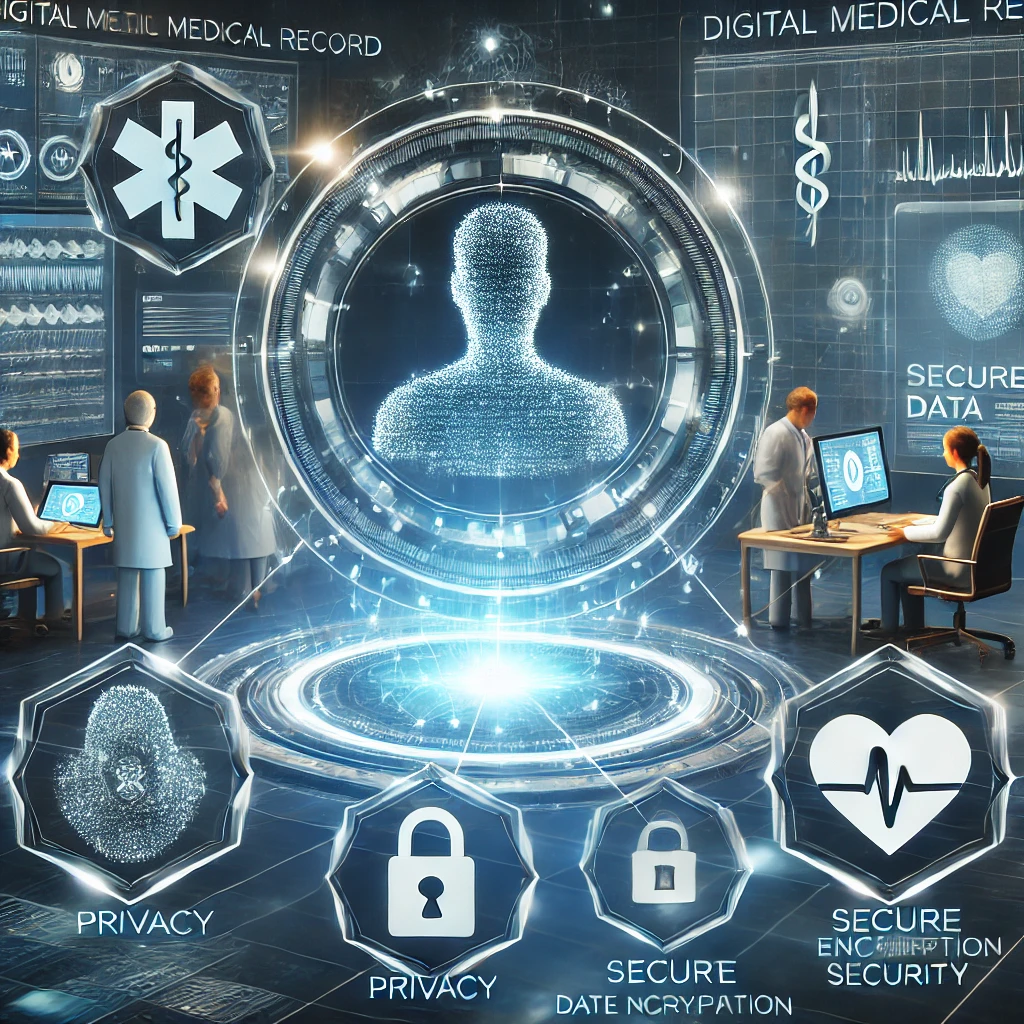Introduction
In recent years, blockchain technology has evolved beyond cryptocurrency and found applications in various industries. One of its most promising applications is in healthcare, where blockchain can be used to create transparent, secure, and immutable medical records. This innovation has the potential to enhance patient trust, improve healthcare outcomes, and streamline medical data management.
This article explores how blockchain can revolutionize healthcare by ensuring data security, accessibility, and transparency while addressing challenges such as privacy concerns and interoperability.
The Need for Transparency in Medical Records
1. Challenges in Traditional Healthcare Data Management
- Data Breaches: Healthcare data is a prime target for cyberattacks, with millions of patient records exposed yearly.
- Lack of Interoperability: Different healthcare providers use incompatible systems, making data exchange difficult.
- Medical Errors: Miscommunication and lost records contribute to avoidable medical errors and misdiagnoses.
- Limited Patient Access: Patients often struggle to access their own health records or transfer them between providers.
2. How Blockchain Can Address These Challenges
- Immutable and Secure Storage: Data cannot be altered or deleted, reducing fraud.
- Decentralized Data Access: Eliminates central points of failure and prevents unauthorized access.
- Real-Time Updates: Healthcare providers can update patient records in real time, ensuring accuracy.
- Patient Empowerment: Patients gain full control over their health data and can grant access to trusted professionals.
How Blockchain Works in Healthcare
1. Decentralized Ledger Technology (DLT)
- Stores medical records across a distributed network of nodes, reducing risks of data breaches.
- Ensures that all transactions are time-stamped and cryptographically secured.
2. Smart Contracts for Automated Processes
- Enables automated claims processing and reduces administrative delays.
- Ensures instant verification of patient history, prescriptions, and treatments.
3. Tokenization for Secure Data Sharing
- Patients can use blockchain-based tokens to authorize access to medical professionals.
- Provides a transparent audit trail of who accessed or modified records.
Benefits of Blockchain for Medical Records
1. Improved Data Security
- End-to-end encryption ensures that patient data is only accessible to authorized users.
- Reduces the risk of hacking and medical identity theft.
2. Better Coordination Among Healthcare Providers
- Ensures that hospitals, clinics, and pharmacies have access to up-to-date patient records.
- Reduces redundant medical tests and improves diagnostic accuracy.
3. Faster Insurance Processing and Billing
- Automates claims verification, reducing fraud and processing time.
- Enables real-time billing and reimbursement tracking.
4. Enhanced Patient Trust and Engagement
- Patients can track every interaction with their medical data.
- Increases transparency, building trust between patients and healthcare providers.
Real-World Applications of Blockchain in Healthcare
1. Electronic Health Records (EHRs)
- Companies like IBM Watson Health and Medicalchain are developing blockchain-based EHRs.
- Ensures seamless data exchange between hospitals, insurance firms, and pharmacies.
2. Drug Supply Chain Management
- Blockchain helps track pharmaceuticals from manufacturing to patient delivery, reducing counterfeit drugs.
- Companies like Modum and MediLedger are implementing blockchain for supply chain integrity.
3. Clinical Trials and Research
- Prevents data manipulation in clinical trials by ensuring tamper-proof records.
- Encourages data sharing among research institutions while maintaining privacy.
4. Telemedicine and Remote Patient Monitoring
- Securely stores patient data from IoT-based medical devices.
- Reduces fraud in remote consultations and prescriptions.
Challenges of Implementing Blockchain in Healthcare
1. Scalability and Speed
- Blockchain networks like Ethereum and Hyperledger face scalability issues, leading to slower transactions.
- Approaches such as Layer 2 protocols and sharding are currently under exploration.
2. Regulatory and Compliance Concerns
- Ensuring compliance with HIPAA, GDPR, and other health data privacy laws.
- Governments must develop clear regulatory frameworks for blockchain adoption.
3. High Implementation Costs
- Setting up blockchain-based healthcare solutions requires substantial investment.
- Adoption may be slow due to legacy system integration challenges.
4. Data Privacy vs. Transparency
- Balancing patient data privacy while maintaining decentralized transparency.
- Zero-knowledge proofs (ZKPs) and homomorphic encryption may help solve this issue.
The Future of Blockchain in Healthcare
1. AI and Blockchain Integration
- AI-powered predictive analytics combined with blockchain-secured patient data.
- Enhances early disease detection and personalized treatment plans.
2. Government and Institutional Adoption
- Countries like Estonia and UAE are already implementing blockchain-based health records.
- Increased adoption by public health agencies to ensure universal access to secure records.
3. Blockchain-Powered Healthcare Marketplaces
- Patients may use blockchain platforms to choose verified doctors and healthcare services.
- Smart contracts will enable secure and transparent billing.
4. Global Interoperability in Medical Data
- Blockchain could facilitate cross-border healthcare collaborations.
- Standardization efforts from World Health Organization (WHO) and blockchain consortia.
Conclusion
Blockchain has the potential to redefine healthcare data management by making medical records more secure, transparent, and accessible. By addressing data privacy concerns, interoperability challenges, and adoption barriers, blockchain can enhance patient trust and healthcare efficiency.
As technology continues to advance, governments, healthcare providers, and tech innovators must collaborate to implement scalable and secure blockchain solutions. The future of blockchain-powered healthcare promises improved patient care, streamlined operations, and a more trustworthy healthcare ecosystem.
Also Read:
Blockchain in Healthcare: Enhancing Data Security and Patient Privacy









+ There are no comments
Add yours